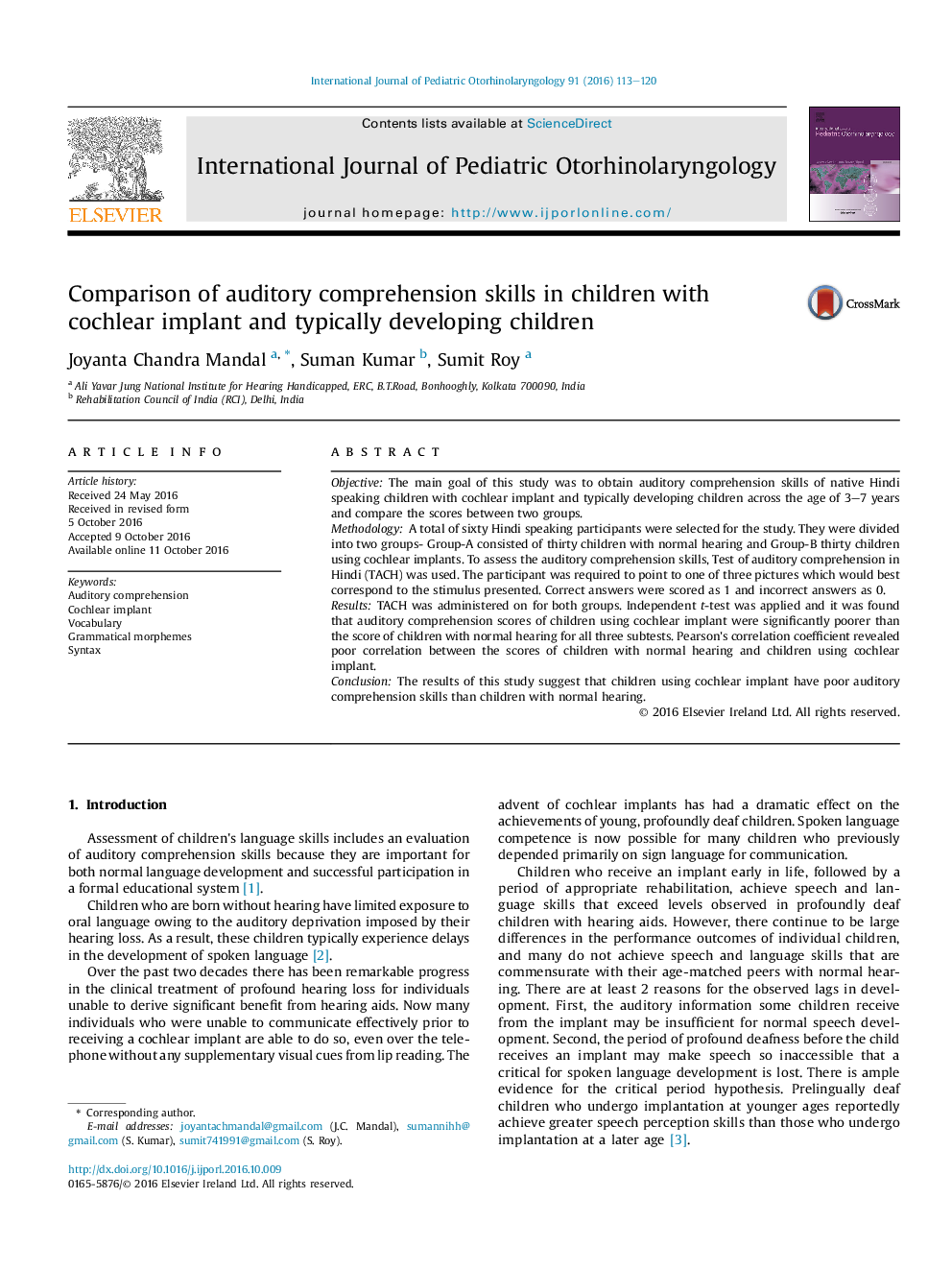| Article ID | Journal | Published Year | Pages | File Type |
|---|---|---|---|---|
| 6212963 | International Journal of Pediatric Otorhinolaryngology | 2016 | 8 Pages |
ObjectiveThe main goal of this study was to obtain auditory comprehension skills of native Hindi speaking children with cochlear implant and typically developing children across the age of 3-7 years and compare the scores between two groups.MethodologyA total of sixty Hindi speaking participants were selected for the study. They were divided into two groups- Group-A consisted of thirty children with normal hearing and Group-B thirty children using cochlear implants. To assess the auditory comprehension skills, Test of auditory comprehension in Hindi (TACH) was used. The participant was required to point to one of three pictures which would best correspond to the stimulus presented. Correct answers were scored as 1 and incorrect answers as 0.ResultsTACH was administered on for both groups. Independent t-test was applied and it was found that auditory comprehension scores of children using cochlear implant were significantly poorer than the score of children with normal hearing for all three subtests. Pearson's correlation coefficient revealed poor correlation between the scores of children with normal hearing and children using cochlear implant.ConclusionThe results of this study suggest that children using cochlear implant have poor auditory comprehension skills than children with normal hearing.
